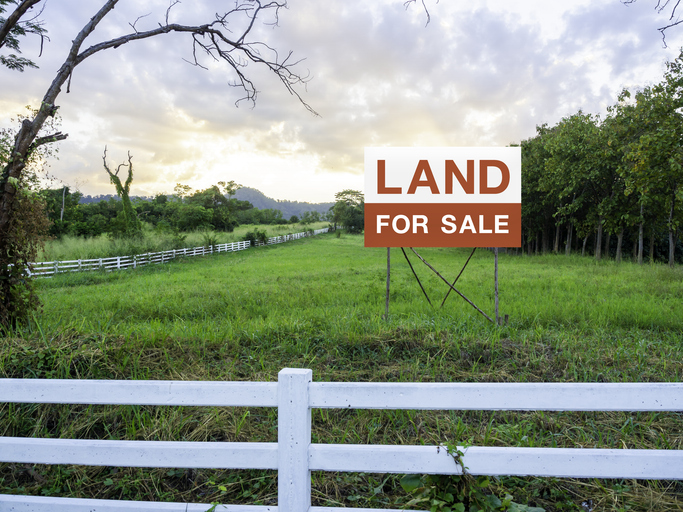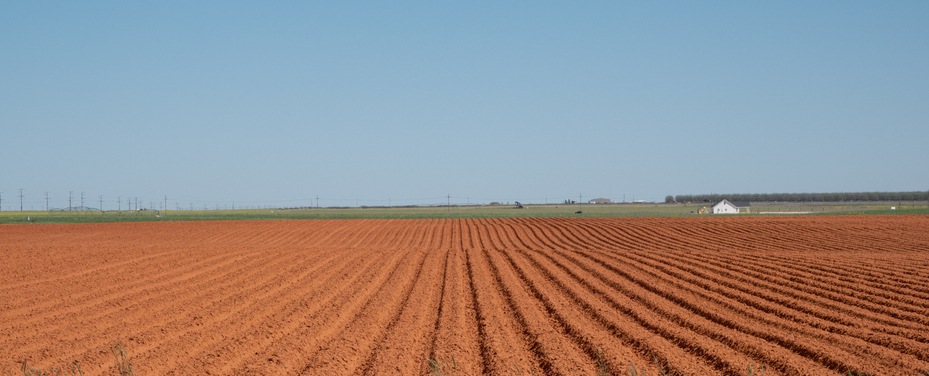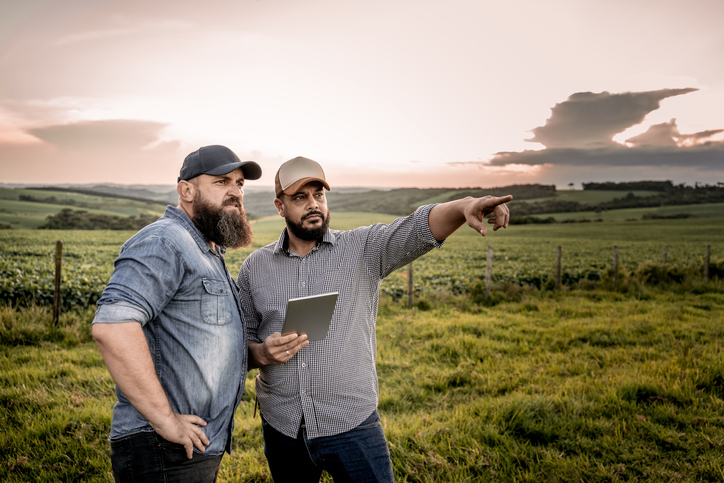Jan 15, 2025
Pros and Cons of Buying Land vs. Renting Land

When considering rural land in Texas, the decision to buy or rent is a crucial one, with long-term implications for your future plans. Both options offer benefits and challenges, making it essential to weigh the pros and cons carefully. For some, renting might be a practical starting point. For others, ownership could be the key to achieving their dreams.
Owning rural land comes with great opportunities, from building generational wealth to having full control over how the land is used. However, it also requires significant commitment and financial planning. On the other hand, renting provides flexibility and lower initial costs but may lack the stability and long-term benefits of ownership.
Understanding the trade-offs is vital, and for those leaning towards ownership, rural land loans offer a strategic way to turn dreams into reality. Partnering with experienced rural land lenders like Legacy Ag Credit ensures that you’re making the best choices for your goals.
Understanding the Upsides and Downsides of Buying Land
Purchasing rural land offers unique opportunities and challenges. While ownership provides stability and potential financial growth, it also comes with risks that should be carefully considered. Here’s a closer look at the specific advantages and disadvantages of owning rural land in Texas.
Advantages of Purchasing Land
Long-term Investment Potential and Property Appreciation
Rural land often increases in value over time, making it a strategic long-term investment. As demand for land in Texas continues to grow, property appreciation can help build wealth and provide financial security for future generations.
Full Control Over Land Use and Development
From farming and ranching to building a home or recreational space, ownership allows you to shape the property to meet your vision without external restrictions.
The Ability and Importance of Creating a Legacy
Land ownership goes beyond financial benefits, it’s about creating a lasting legacy. Rural land can be passed down through generations, becoming the foundation for your family’s heritage and future.
Disadvantages of Purchasing Land
High Upfront Costs
Buying land involves significant upfront expenses, including the purchase price, a substantial down payment, and associated fees such as appraisals, legal costs, and closing charges.
Responsibility for Maintenance, Taxes, and Infrastructure
Owning land comes with ongoing responsibilities. Maintenance, property taxes, and developing infrastructure (like utilities and road access) are all the owner’s responsibilities, requiring time and financial investment.
Requires Securing Financing
For many buyers, purchasing land outright isn’t feasible. Securing financing is often a necessary step. Rural land loans, offered by specialized rural land lenders, provide tailored solutions that can ease the path to ownership, ensuring the investment aligns with your financial situation

Evaluating the Benefits and Drawbacks of Renting Land
Renting land can be an attractive option for those seeking flexibility or for those not ready to commit to ownership. However, while it offers certain conveniences, it also comes with limitations that may affect your long-term plans. Let’s break down the pros and cons to help you assess whether renting is the right choice for your needs.
Pros of Renting Land
Lower Initial Costs and Financial Risk
Renting land eliminates the need for a large down payment or upfront purchase costs, making it a financially accessible option. This can be particularly beneficial for those starting out in agriculture or exploring rural living.
Flexibility to Relocate or Adjust Land Usage Without Long-term Commitment
Leasing land allows you to experiment with different uses or locations without being tied down. Whether you want to try new crops, test a rural lifestyle, or adjust your operations, renting offers the freedom to adapt.
Less Responsibility for Infrastructure or Land Improvements
Maintenance and development costs often fall to the landowner, reducing your financial and managerial burden. This can make renting an appealing choice for those who want to focus solely on utilizing the land.
Cons of Renting Land
Lack of Equity Building or Ownership Benefits
While renting may be cost-effective initially, it doesn’t contribute to equity or provide the long-term investment benefits of owning property. Any payments made benefit the landowner rather than building your wealth.
Limited Control Over the Land
Leasing land means adhering to the landlord’s terms and conditions. This can limit your ability to make modifications or improvements, potentially hindering your vision for the land.
Potential for Rising Rental Costs or Lease Termination
Rent prices can increase over time, and leases may not always be renewed. This lack of stability can complicate long-term planning.

Assessing Your Operation’s Needs to Make the Right Choice
Determining whether to buy or rent rural land ultimately depends on your operation’s goals and the scale of your intended land use. Whether you’re planning to build a ranch, start short-term agricultural activities, or pursue a personal rural retreat, assessing your specific needs is an absolute must.
Key factors such as required acreage, water, and utility access, and proximity to markets or resources should be top considerations. Additionally, using Legacy Ag Credit resources, like our guide to calculating the right land loan, can help evaluate your financial and operational requirements.
Long-term Investment, Stability, or Legacy Creation
Purchasing rural land is often the better choice for those seeking stability and long-term rewards. Owning land offers the opportunity to create a legacy for future generations. Landownership also provides peace of mind, as it frees you from the uncertainties of fluctuating rental terms or lease non-renewals.
In addition, land ownership can yield significant financial benefits as a long-term investment, with property values appreciating over time. Securing rural land financing ensures that these opportunities are within reach while tailoring repayment terms to fit your financial capabilities.
Short-Term Flexibility or Adaptable Operations
Renting land can be the ideal solution for those prioritizing short-term needs or operational adaptability. Adaptable operations refer to farming practices that can be implemented quickly, such as cover crops.
The Role of Rural Land Loans in Buying Land
Rural land loans emerge as an invaluable resource. These loans not only help reduce the financial hurdles of ownership but also address some of the disadvantages of renting. Here’s how rural land loans can support your goals.
What is a Rural Land Loan?
Let’s define the types of land loans.
- Raw Land Loan - Designed for undeveloped properties, offering financing to purchase land that may lack access to utilities or infrastructure. It is ideal for long-term projects, such as building a ranch or preparing for future development.
- Lot Land Loan - This type of loan is more specific, focusing on smaller parcels of land with some development, such as utilities or zoning. It is perfect for those looking to secure land with near-term development plans.
- Construction Loan - combines land acquisition with funds for building. Whether you’re constructing a home, barn, or other structure, it can simplify the process.
Rural land loans, like those offered by Legacy Ag Credit, cater specifically to the needs of agricultural and rural properties, ensuring a seamless financing experience tailored to your goals. Learn more about rural land loans.

Explore Rural Land Loans with Legacy Ag Credit
Legacy Ag Credit offers tailored loan solutions, experienced professionals, and a deep connection to the Texas community to help you succeed. With Legacy Ag Credit, your path to land ownership is closer than ever. Visit one of our branch locations or contact us today and take the first step toward your future!
Frequently Asked Questions (FAQs): Navigating Rural Land Loan Process
Q: Is a land loan considered a mortgage?
A: Not exactly. A land loan is used for purchasing land, while a mortgage typically refers to loans for properties with homes or buildings.
Q: What credit score do you need for a land loan?
A: A credit score of at least 680 is typically recommended, though exact requirements vary by lender and loan type.
Q: What is the down payment requirement?
A: Down payments for rural land loans typically range from 20% to 25%, depending on the property type and lender requirements.
Q: What are the loan term options?
A: Loan terms vary but generally range from 5 to 25 years.
Q: Are fixed and adjustable-rate options available?
A: Yes, rural land loans often offer both fixed and adjustable-rate options, allowing you to choose the plan that best fits your budget.
